The publication Towards lifelong learning includes a vision for the direction in which lifelong learning should be developed in the long term. The leaders hope that after the parliamentary elections the topic will have a central role in the next government programme.
“In a wider sense, lifelong learning is not only about competences, competitiveness and well-being but also about the core of our society: education, inclusion and prevention of social inequality,” the leaders emphasise in the introduction of the publication.
The mindset was formulated during last autumn and January 2019. Invited by Sitra, the most senior leaders of 30 key organisations and the experts nominated by them have participated in the work. The same parties will next draw up the principles for funding lifelong learning, due to be published in March.
More learning opportunities for the working-age population and strong basic skills for everyone
In the past few years learning throughout one’s life has featured prominently in the societal discussion both in Finland and internationally for reasons such as the rapid development of technology, diversification of society and the increasing importance of high levels of expertise as the source of economic growth.
As digitalisation, artificial intelligence and robotics are changing current occupations and the competences required in the world of work, the challenge of having to learn new things increasingly concerns the working-age population as well.
“There is room for improvement especially in the structures for renewing the competences of the working-age population. Although international comparisons reveal that Finns participate widely in adult education, there are still people who do not have opportunities to renew their competences and skills,” the statement says.
The idea is not to push the entire working age population back to school, but rather to find new ways for people to renew and update their competences and skills alongside work. This is in everyone’s interests as competences and skills renew working life just like working life renews competence and skills.
Although solutions are required especially for the competence needs of the working-age population, the capacities for learning throughout one’s life are already created in childhood. Therefore, high-quality early childhood education and care and learning to acquire skills will be emphasised also in the future competence system.
The leaders consider learning in everyday life to be valuable as well. For example, the knowledge and skills acquired in voluntary and organisational work and hobbies need to be highlighted, and new tools are consequently required for identifying and recognising them.
“We need new kinds of ways to support continuous learning at work, during free time, in hobbies and in families’ everyday life,” the leaders stress.
In addition to basic skills, Finland also needs to invest in more extensive expertise, which means strong basic and applied research that feeds innovations and encourages the capacity for renewal.
Impact of investments in education must be measured
Last year over €19 billion was allocated to lifelong learning in Finland. Compared internationally, education investments in our country are among the largest, which also applies to the public funding of education. Central government’s and municipalities’ share of the total amount was €15.5 billion, more than 80 per cent.
According to the leaders more research information is needed on the impact of both public and private investments in education. By comparing the objectives and the results it is possible to allocate funds in an impact-oriented manner to activities that can verifiably meet the objectives set for well-being and development of competence. In the future impact assessment should already be taken into consideration when educational reforms are in the planning stage.
“Ideally, knowledge of the impact of public investments will help decision-makers implement a lifelong learning policy in which effective investments in competence and skills prevent the need for corrective actions later in the individual’s life. It is a question of both the sustainability of the public finances and everyone’s meaningful life and opportunities to improve themselves,” the leaders explain.
Funding principles supporting the mindset to be published in March
The statement has been signed by the following leaders and organisations: Jarkko Eloranta (President, Central Organisation of Finnish Trade Unions SAK), Sture Fjäder (President, Confederation of Unions for Professional and Managerial Staff in Finland Akava), Jari Gustafsson (Permanent Secretary, Ministry of Economic Affairs and Employment), Olli-Pekka Heinonen (Director General, Finnish National Agency for Education), Martti Hetemäki (Permanent Secretary, Ministry of Finance), Iris Hynönen (President, Suomen opiskelijakuntien liitto SAMOK), Jyri Häkämies (Director General, Confederation of Finnish Industries EK), Markku Jalonen (Director General, KT Local Government Employers), Timo Kietäväinen (CEO, Keva), Timo Lankinen (Permanent State Under-Secretary, Prime Minister’s Office), Anita Lehikoinen (Permanent Secretary, Ministry of Education and Culture), Sanni Lehtinen (President, National Union of University Students in Finland SYL), Leena Linnainmaa (Chair, Finnish Association for the Development of Vocational Education and Training AMKE), Olli Luukkainen (President, Trade Union of Education OAJ), Jessica Makkonen (Chair, Suomen Opiskelija-Allianssi OSKU), Risto Murto (President and CEO, Varma Mutual Pension Insurance Company), Jyrki Mäkynen (President, Suomen Yrittäjät), Jukka Mönkkönen (Chair, Universities Finland UNIFI), Jouko Niinimäki (Chair, Finnish Education Employers), Antti Palola (Chairman, Finnish Confederation of Salaried Employees STTK), Harri Peltoniemi (Director, Finnish Education Evaluation Centre), Seija Petrow (Director of Collective Agreements, Office for the Government as Employer VTML), Jouko Pölönen (President and CEO, Ilmarinen Mutual Pension Insurance Company), Juho Romakkaniemi (President and CEO, Finland Chamber of Commerce), Suvi-Anne Siimes (Managing Director, Finnish Pension Alliance TELA), Päivi Sillanaukee (Permanent Secretary, Ministry of Social Affairs and Health), Hanna Tainio (Deputy Managing Director, Association of Finnish Local and Regional Authorities), Elias Tenkanen (Chair, National Union of Vocational Students in Finland Sakki), Tapio Varmola (Chair, Rectors’ Conference of Finnish Universities of Applied Sciences Arene) and Björn Wallén (Chair, Finnish Adult Education Association).
Experts from the above organisations and the experts and influencers in the field of learning who participated in the open workshops have also contributed to this work.
Together the now published mindset and the funding principles due to be published in March form an entity which the participating organisations hope will be highlighted in the next government negotiations.
Sitra’s three-year Lifelong learning project was launched in October 2018. Sitra will facilitate joint discussions of different parties and is committed to promoting lifelong learning based on jointly formulated views.



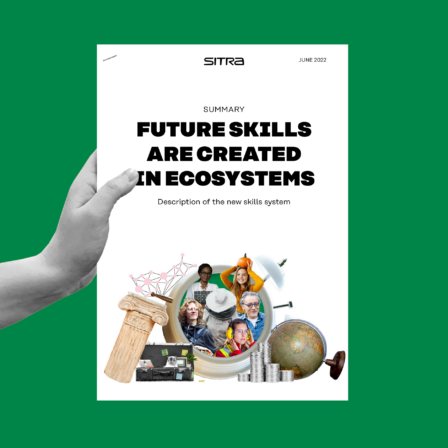
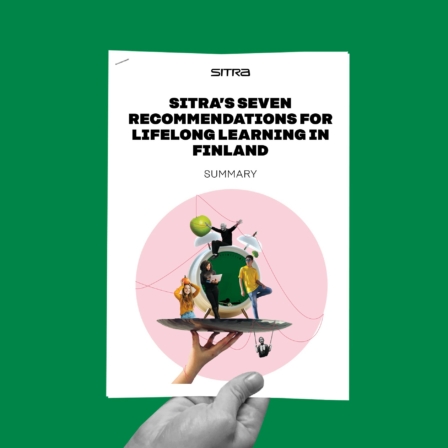


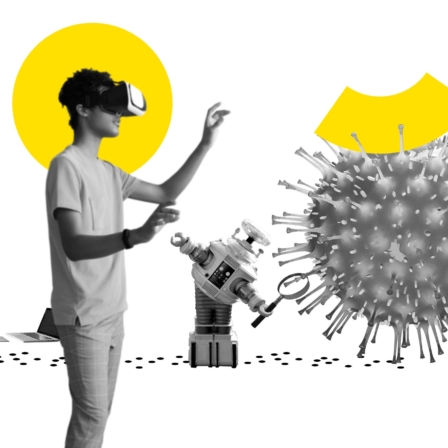






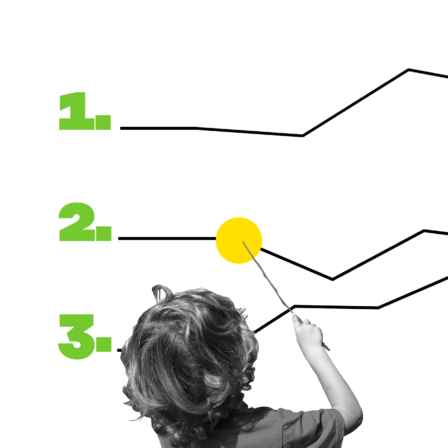


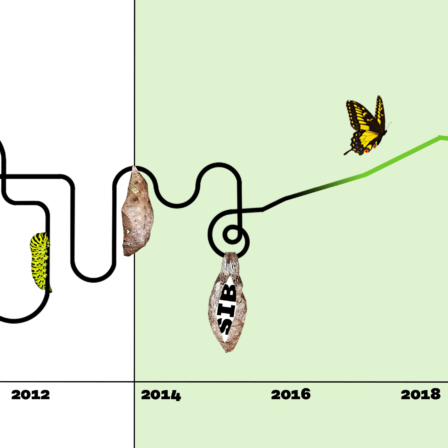

Recommended
Have some more.